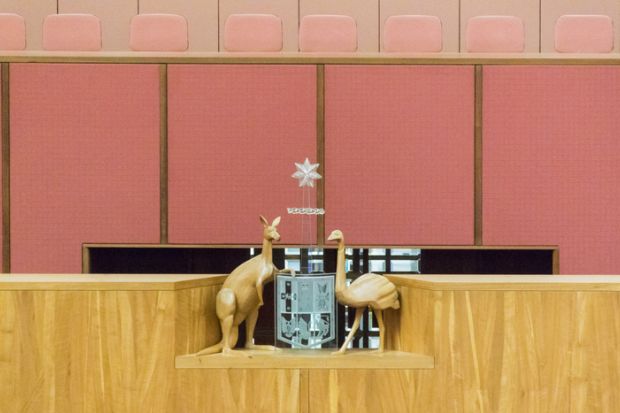Universities face court action if they do not cooperate with probes into underpayment of their casual staff, according to Australia’s workplace relations watchdog. And the Fair Work Ombudsman is turning to artificial intelligence to help manage a mounting investigation workload.
During questioning from senators, ombudsman Sandra Parker declined to name an industry with more “wage theft” than higher education. “We’re not happy with the university sector,” she told a Senate estimates committee hearing. “This is incredibly disappointing and it shouldn’t have happened.”
Ms Parker declined to name 14 universities her office is currently investigating. But she acknowledged that the list could grow, after the National Tertiary Education Union claimed that 21 public universities – almost 60 per cent of the sector – were under external or internal investigation.
She said that while some institutions had “self-disclosed” historical underpayments, her office had learnt about others through media reports. She warned the sector to be more forthcoming.
“If universities…resist telling us how they’re going about doing their calculations or don’t show us what methodology they’re using, we will if needed do a full investigation – our own calculations, our own assessment. We will take them to court if we feel a penalty [is] appropriate.”
Ms Parker said that vice-chancellors had been slow to react when she wrote to them outlining her concerns in late 2020. Universities were “taking the issue more seriously” now, “but in the early days they didn’t necessarily believe that it impacted them”.
She elaborated on previously announced plans to use data analytics in large-scale compliance checks, saying her office was working with external companies to automate some of its assessments.
“That means [that] when we get a lot of information…we don’t have to spend hundreds of hours going through spreadsheets line by line. Algorithms can be developed to assess whether or not it looks like there’s underpayment occurring.”
Ms Parker said that her office had received few direct complaints from underpaid casual academics, but urged them to come forward – anonymously if they preferred. “We welcome the conversation.”
In September, Sydney, Melbourne and Monash universities revealed that they had repaid or were in the process of repaying a combined A$31 million (£17 million) in underpayments that in some cases stretched back seven years. Sydney has since been hit with a claim for a further A$2 million, while RMIT University faces demands for up to A$17 million.
Sydney said that it had found no evidence to support the latest claim, but urged staff to come forward with concerns or complaints. RMIT said that it aimed “to resolve the dispute as quickly as possible”.




